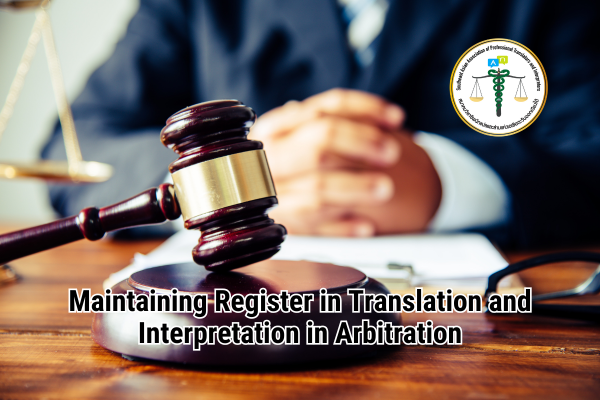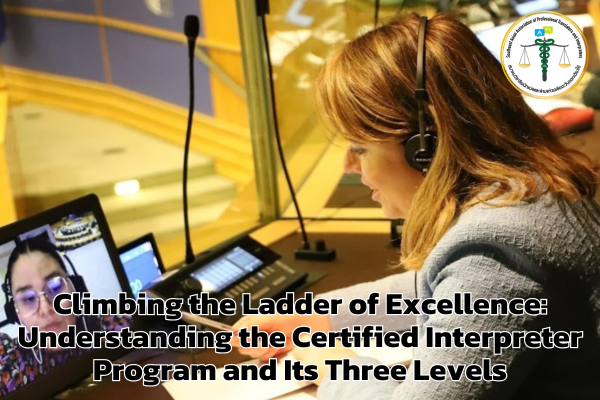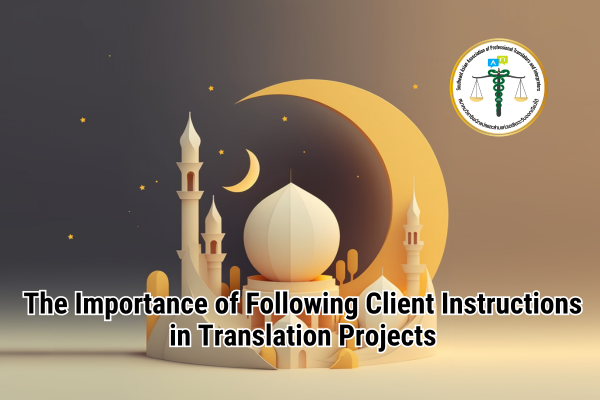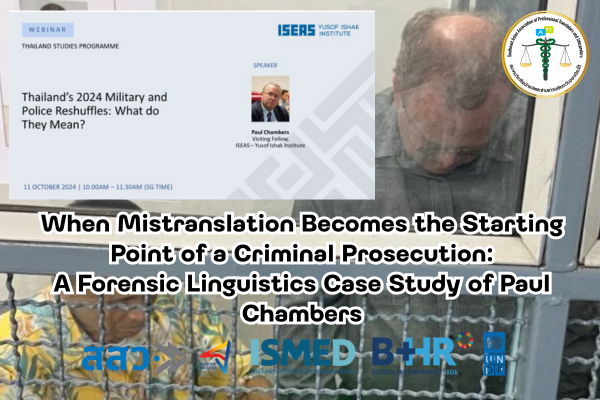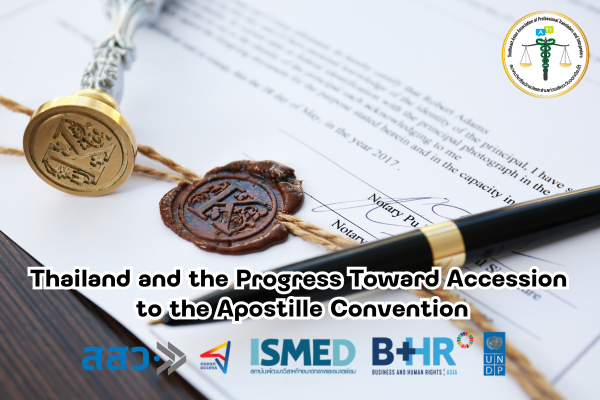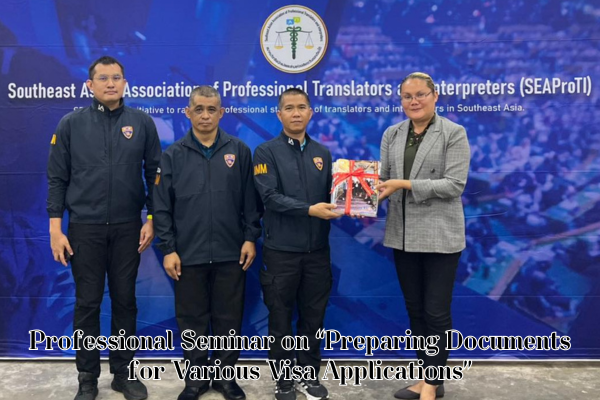Maintaining Register in Translation and Interpretation in Arbitration: Importance and Best Practices
28 February 2025, Bangkok – Working as an interpreter in arbitration or legal proceedings requires the highest level of accuracy in conveying the meaning from one language to another. The interpreter’s role demands strict adherence to neutrality and precision, especially when translating witness testimony. The language used by a witness may vary in register, and it is crucial for the interpreter to translate it faithfully without altering the original meaning or tone of the testimony.
This article discusses the importance of maintaining the correct register in translation and interpretation, particularly in arbitration settings. We will also explore potential issues that may arise when legal interpreters fail to maintain register and provide examples of situations that may occur in arbitration proceedings.
The Importance of Maintaining Register in Translation
In arbitration, maintaining neutrality is of utmost importance. An interpreter should not alter or enhance the witness’s testimony based on personal opinions or interpretations. If an interpreter changes the register of the testimony—such as translating simple language into more complex legal jargon—it can distort the meaning of what the witness intended to convey. This undermines the fairness and integrity of the legal process.
Register refers to the variation in language based on the context in which it is used. It can range from casual or conversational language to more formal, technical, or legal language. If a witness uses plain or everyday language, but the interpreter translates it using complex legal terminology, the meaning can become less clear or even change completely. This is why interpreting with the correct register is critical in legal contexts.
Example of Situations in Arbitration
Let’s consider a scenario in an arbitration case involving a dispute between two major companies. One of the witnesses is an ordinary individual with no legal training, and they are testifying about a situation they witnessed. The witness may use simple language to describe the events, such as “I saw the car hit the other car.” However, the interpreter, who is a lawyer and familiar with legal language, may choose to translate this statement into more complex legal language, such as “An incident occurred wherein the vehicles collided, resulting in damage to the property.”
Problems Caused by Altering the Register
The problems that arise from altering the register are significant. In this example, the use of overly formal legal language may obscure the simplicity and clarity of the original statement. Instead of reflecting the witness’s straightforward testimony, the interpreter’s translation may make the statement sound more convoluted or even introduce unintended nuances. This can confuse the arbitration panel and other parties involved, and it can negatively impact the fairness of the process.
The Interpreter’s Duty to Maintain Neutrality
An interpreter’s primary responsibility in arbitration is to remain neutral and faithful to the original statement. While it is understandable that legal interpreters, with their expertise in law, may want to use technical or legal language, they must resist the temptation to “improve” or “refine” the witness’s words. The role of the interpreter is not to modify the register or alter the meaning, but rather to accurately convey the witness’s words as they were spoken.
Legal interpreters must be mindful of the fact that their role is not to provide legal advice or enhance the clarity of the testimony. Instead, they are tasked with faithfully translating the witness’s words and maintaining the tone and intent of the original message.
Best Practices for Legal Interpreters
-
Interpreter Training on Register Maintenance: Interpreters should undergo training specifically focused on maintaining register. This will help them understand the significance of preserving the level of language used by the witness and how to translate without altering it.
-
Understanding the Context of the Testimony: It is essential for interpreters to understand the context in which the witness is speaking. This understanding helps interpreters avoid unnecessary changes in the register. Interpreters should be trained to recognize the level of language used by the witness and translate accordingly.
-
Using Plain Language When Appropriate: Interpreters should aim to use clear and simple language when translating witness testimony, especially when the witness uses plain language. Overcomplicating the translation with legal jargon could obscure the meaning and cause confusion.
-
Neutrality in Translation: Interpreters should avoid injecting their own views or legal expertise into the translation. The interpreter must remain impartial and only convey what was said, not what they think should have been said.
Conclusion
Maintaining the correct register in legal interpreting is essential to ensuring that witness testimony is conveyed accurately and fairly in arbitration proceedings. When interpreters alter the register by translating simple language into complex legal terms, they risk distorting the meaning of the testimony and compromising the integrity of the arbitration process. Legal interpreters must be vigilant in preserving the level of language used by the witness, remaining neutral, and avoiding unnecessary adjustments to the language. By adhering to these principles, interpreters can ensure fairness in legal proceedings and contribute to a just and accurate process.
SEAProTI’s certified translators, translation certification providers, and certified interpreters:
The Southeast Asian Association of Professional Translators and Interpreters (SEAProTI) has officially announced the criteria and qualifications for individuals to register as “Certified Translators,” “Translation Certification Providers,” and “Certified Interpreters” under the association’s regulations. These guidelines are detailed in Sections 9 and 10 of the Royal Thai Government Gazette, issued by the Secretariat of the Cabinet under the Office of the Prime Minister of the Kingdom of Thailand, dated July 25, 2024, Volume 141, Part 66 Ng, Page 100.
To read the full publication, visit: the Royal Thai Government Gazette
การรักษาระดับภาษา (Register) ในการแปลและการล่ามในงานอนุญาโตตุลาการ: ความสำคัญและแนวทางการปฏิบัติ
การทำงานในตำแหน่งของล่ามในงานอนุญาโตตุลาการหรือการพิจารณาคดีในระบบกฎหมาย ถือเป็นหน้าที่ที่ต้องการความรอบคอบสูงสุดในการแปลความหมายจากภาษาหนึ่งไปยังอีกภาษาหนึ่ง ความถูกต้องและความเป็นกลางในบทบาทของล่ามจึงเป็นสิ่งที่สำคัญมาก โดยเฉพาะในกรณีที่เกี่ยวข้องกับคำให้การของพยาน ซึ่งภาษาที่ใช้ในการให้การอาจมีระดับต่างๆ และล่ามจำเป็นต้องแปลให้ตรงตามระดับภาษา (Register) ที่พยานใช้โดยไม่เพิ่มหรือลดความหมายที่แท้จริงของคำให้การนั้นๆ
ในบทความนี้ เราจะพูดถึงการรักษาระดับภาษา (Register) ในงานล่าม โดยเฉพาะในงานอนุญาโตตุลาการที่เกี่ยวข้องกับคำให้การของพยาน และการแปลคำให้การของพยานโดยล่ามที่มีความรู้ด้านกฎหมาย รวมถึงกรณีศึกษาที่อาจเกิดขึ้นในกระบวนการอนุญาโตตุลาการ
ความสำคัญของการรักษาระดับภาษา (Register) ในการแปล
ในงานอนุญาโตตุลาการนั้น การรักษาความเป็นกลางของล่ามถือเป็นสิ่งสำคัญอย่างยิ่ง เพราะล่ามไม่ควรมีบทบาทในการเปลี่ยนแปลงหรือปรับปรุงคำให้การของพยานตามมุมมองส่วนตัวของตนเอง หากล่ามแปลคำให้การโดยการปรับเปลี่ยนระดับภาษา หรือเพิ่มคำศัพท์ที่ซับซ้อนเกินไป จะทำให้ความหมายของคำให้การเปลี่ยนแปลงไปจากที่พยานต้องการจะสื่อ นี่จะเป็นการละเมิดหลักการพื้นฐานในการเป็นล่ามที่รักษาความเป็นกลางและความถูกต้องของข้อมูล
ระดับภาษา (Register) หมายถึง การใช้ภาษาตามบริบทที่แตกต่างกัน ซึ่งมักจะถูกแบ่งออกเป็นระดับต่างๆ เช่น ภาษาเชิงทางการ ภาษาเชิงเทคนิค และภาษาทั่วไป ภาษาที่พยานใช้ในคำให้การอาจจะเป็นภาษาทั่วไปที่ง่ายและเข้าใจได้ง่าย แต่หากล่ามใช้ภาษาเชิงกฎหมายหรือภาษาที่ซับซ้อนเกินไปเพื่อแปลคำให้การนี้ อาจทำให้คำให้การดูเหมือนจะเป็นเรื่องที่ซับซ้อน หรืออาจบิดเบือนความหมายได้
ตัวอย่างสถานการณ์ในงานอนุญาโตตุลาการ
สมมติว่าในกระบวนการอนุญาโตตุลาการมีการพิจารณาคดีเกี่ยวกับข้อพิพาทระหว่างสองบริษัทใหญ่ โดยหนึ่งในพยานเป็นบุคคลที่ไม่ได้มีความรู้หรือความเชี่ยวชาญด้านกฎหมาย หรือไม่ใช่ผู้มีการศึกษาระดับสูง พยานนี้อาจจะใช้ภาษาที่เข้าใจง่ายในการอธิบายสถานการณ์ที่เกิดขึ้น แต่ล่ามที่เป็นทนายความซึ่งมีความรู้ทางด้านกฎหมายอาจทำการแปลคำให้การของพยานเหล่านั้นให้มีภาษากฎหมายที่ซับซ้อนขึ้น
ปัญหาที่เกิดจากการปรับระดับภาษา
ปัญหาที่เกิดขึ้นจากการแปลคำให้การที่ปรับเปลี่ยนระดับภาษา จะมีหลายกรณี ตัวอย่างหนึ่งคือเมื่อพยานบอกว่า “ผมเห็นรถคันนั้นชนกับรถอีกคัน” ซึ่งเป็นภาษาที่ง่ายและเข้าใจได้ทั่วไป หากล่ามนำคำนี้มาแปลเป็นภาษากฎหมายว่า “เหตุการณ์ที่เกิดขึ้นในลักษณะการปะทะกันของยานพาหนะทั้งสองที่ทำให้เกิดความเสียหายต่อทรัพย์สิน” อาจทำให้ความหมายที่พยานต้องการสื่อหายไป โดยเฉพาะหากคำแปลนั้นทำให้ความเสียหายหรือเหตุการณ์ดูซับซ้อนมากขึ้น ซึ่งอาจทำให้คำให้การของพยานดูไม่ชัดเจนและสร้างความสับสนให้กับอนุญาโตตุลาการ
การรักษาความเป็นกลางของล่าม
ล่ามในงานอนุญาโตตุลาการต้องมีความเข้าใจในบทบาทของตนเอง คือไม่แปลคำให้การของพยานไปในทิศทางที่ผิดหรือไม่เหมาะสม ซึ่งล่ามที่มีความรู้ทางกฎหมายอาจจะมีความเสี่ยงในการแปลคำให้การด้วยการเพิ่มภาษากฎหมายที่เกินความจำเป็น ดังนั้นล่ามจำเป็นต้องตระหนักถึงข้อจำกัดของตัวเองและไม่ทำการตีความหรือปรับระดับภาษาของพยานโดยไม่จำเป็น
แนวทางในการแก้ไขปัญหา
- การฝึกอบรมล่ามเกี่ยวกับการรักษาระดับภาษา: การอบรมล่ามในด้านการรักษาระดับภาษาของพยานเป็นสิ่งสำคัญ เพราะล่ามต้องเข้าใจถึงความแตกต่างระหว่างการใช้ภาษาของพยานที่เป็นภาษาทั่วไปกับการใช้ภาษากฎหมายที่ซับซ้อน
- การทำความเข้าใจในบริบทของคำให้การ: ล่ามต้องศึกษาบริบทของคำให้การและไม่ปรับเปลี่ยนคำให้การตามความเข้าใจส่วนตัวของตน
- การใช้ภาษาที่ตรงไปตรงมา: ล่ามต้องแปลคำให้การโดยใช้ภาษาที่ตรงไปตรงมา ไม่เพิ่มหรือยืดเยื้อความหมาย โดยต้องรักษาระดับภาษาให้เหมาะสมกับพยานที่ให้การ
สรุป
การรักษาระดับภาษาในการแปลคำให้การของพยานในงานอนุญาโตตุลาการเป็นสิ่งที่สำคัญมากเพื่อให้คำให้การของพยานได้รับการตีความอย่างถูกต้องและเป็นธรรม การที่ล่ามจะต้องแปลคำให้การโดยไม่ปรับเปลี่ยนระดับภาษาของพยานเป็นการยืนยันถึงความเป็นกลางและความถูกต้องในกระบวนการพิจารณาคดี ล่ามที่ทำงานในงานอนุญาโตตุลาการจึงควรมีความรู้ที่ลึกซึ้งเกี่ยวกับการรักษาระดับภาษาและการเข้าใจบทบาทของตนเองในการแปลคำให้การเพื่อรักษาความเป็นธรรมในกระบวนการทางกฎหมาย
เกี่ยวกับนักแปลรับรอง ผู้รับรองการแปล และล่ามรับรองของสมาคมวิชาชีพนักแปลและล่ามแห่งเอเชียตะวันออกเฉียงใต้
สมาคมวิชาชีพนักแปลและล่ามแห่งเอเชียตะวันออกเฉียงใต้ (SEAProTI) ได้ประกาศหลักเกณฑ์และคุณสมบัติผู้ที่ขึ้นทะเบียนเป็น “นักแปลรับรอง (Certified Translators) และผู้รับรองการแปล (Translation Certification Providers) และล่ามรับรอง (Certified Interpreters)” ของสมาคม หมวดที่ 9 และหมวดที่ 10 ในราชกิจจานุเบกษา ของสำนักเลขาธิการคณะรัฐมนตรี ในสำนักนายกรัฐมนตรี แห่งราชอาณาจักรไทย ลงวันที่ 25 ก.ค. 2567 เล่มที่ 141 ตอนที่ 66 ง หน้า 100 อ่านฉบับเต็มได้ที่: นักแปลรับรอง ผู้รับรองการแปล และล่ามรับรอง


